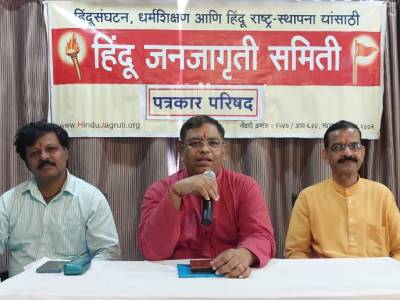Bhadrapad Shuklapaksha 10, Kaliyug Varsha 5116
 |
Beijing (China) : In a major political gesture, Chinese President Xi Jinping is expected to announce the opening of a new safe route for Indian pilgrims visiting Kailash and Mansarovar in Tibet via Sikkim during his forthcoming visit to India.
Besides a package of major investments, Xi may announce the opening of the route sought by Prime Minister Narendra Modi during their first meeting in Fortaleza in Brazil in July this year.
Chinese officials say the proposal is under serious consideration.
All announcements including the quantum of investments China plans to make in India are expected to be announced during Xi's visit planned for the third week of this month.
Expectations are high that the route through Nathu La border point in Sikkim would be part of the big gesture of friendship not only to strike chord with Modi but also the people at large, specially the Hindus and Buddhists considering its religious importance.
Modi wanted the second route for the Kailash-Mansarovar Yatra, keeping in view the terrain difficulties of the existing routes through Uttarakhand and Nepal which involved arduous journey involving heavy tracking or by mules.
The Yatra involves trekking at high altitudes of up to 19,500 feet.
The Yatra being organized by external affairs ministry goes through Lipu Pass, Himalayan pass connecting the Kumaon region of Uttarakhand in India with the old trading town of Taklakot in Tibet. The route was badly damaged in recent floods in Uttarakhand.
The ministry take over 1,000 pilgrims a year in 18 batches involving a 22 day journey.
 |
Mansarovar lake and Mount Kailash. (Getty Images photo)
Tour companies organize similar tours through Nepal which are equally tough, making it difficult for aged and not so healthy people to undertake the pilgrimage.
The journey, however, may become more comfortable if China opens Nathu La pass in Sikkim used for a limited border trade, as the pilgrims could travel by vans and busses up to Mansorvar and Kailash directly.
Officials say the opening of the post will not affect the nature of the border dispute as the clause states that it is subject to the overall agreement of the boundary and would be specified in any new MOU.
The issue figured in the talks on Working Mechanism for Consultation and Coordination on India-China Border Affairs held here in April this year.
The new route, though longer, takes pilgrims from Nathu La to Shigatse also known as Xigaze, the second biggest city in Tibet after provincial Capital Lhasa by road.
From there the pilgrims could comfortably travel to Mansarovar and Kailash using well laid out highway.
Indian travellers, who recently visited the place from China, said the roads from Shigatse to Mansarovar and Kalaish were excellent.
One could drive up to the foot hills of Kailash Mountain, the abode of Lord Shiva without any trekking and mules.
 |
Mount Kailash. (Getty Image file photo)
On its part, China is preparing for increased numbers of Indian pilgrims at both the places and has expanded the facilities during the past few years.
In 2012, Beijing invited then Indian envoy S Jaishankar in a rare gesture and took him to Kailash and Mansarovar to show him the improved facilities.
Asked about the new facilities, the Chinese foreign ministry in a recent e-mail communication to PTI here said lodging and boarding facilities for the pilgrims have been improved with new hotels and additional beds with additional investments.
Pilgrims also can have access to over 2300 vehicles, it said.
In 2013, China received 14,084 pilgrims, a slight increase compared with the year 2012, it said.
Due to floods in northern India, in 2013 only 51 official pilgrims from India went to Kailash Yatra.
"Indians pilgrimage to Tibet is an important content of bilateral relations. China's willingness is in accordance with the spirit of the agreement which has been signed by both parties, provide convenience for pilgrims pilgrimage and to further promote non-governmental exchanges between the two countries, and make efforts together to enhance the level of Sino-Indian relations," the Chinese foreign ministry said.
Source: The Times of India





